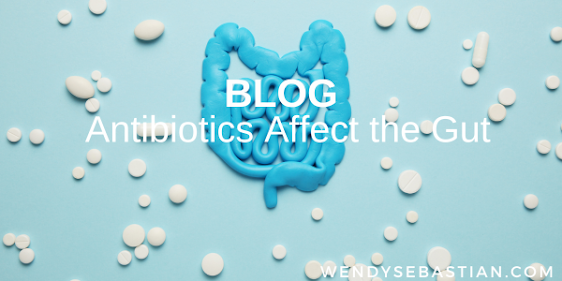The Impact of Antibiotics on the Microbiome: A Closer Look
Antibiotics have truly been a game-changer in modern medicine. This class of drugs has saved so many lives and revolutionized the way we treat infections. However, as with any medication, there are potential downsides and risks associated with antibiotics. One of the most significant concerns today is the impact these drugs have on the microbiome. From recent scientific research, we know that antibiotics can significantly alter the bacterial ecosystem in our gut and that these changes can have serious consequences for our health.
1. Understanding the Microbiome: Before we dive into the impact of antibiotics, it's essential to understand what exactly the microbiome is. The microbiome is the collection of bacteria, fungi, viruses, and other microorganisms that live in our body. Specifically, the gut microbiome is the community of microbes that reside in our digestive tract. These microbes play a critical role in our health and wellbeing, from aiding in digestion to boosting our immune system. The connection between our gut health and overall health cannot be overstated, and recent research has shown that the gut microbiome can even influence our mental health, skin health, and more.
2. The Mechanism of Antibiotics: Antibiotics work by essentially killing or stopping the growth of bacteria. While this is great for tackling infections, it can also have unintended consequences. The gut microbiome is a delicate ecosystem, with many different types of bacteria existing in a delicate balance. When we take antibiotics, they kill off not only the harmful bacteria causing the infection but also the beneficial bacteria that reside in our gut. This can disrupt the balance of the microbiome and allow for opportunistic bacteria to take over.
3. Short-Term Effects of Antibiotics on the Microbiome: When we take antibiotics, the effects on the microbiome are usually immediate and short-term. Studies have shown that even a single course of antibiotics can cause significant changes in the gut microbiome, with alterations lasting for weeks or even months. Some of the common short-term effects of antibiotics include diarrhea, bloating, and nausea, which can all be attributed to disruptions in the gut microbiome.
4. Long-Term Effects of Antibiotics on the Microbiome: While most of the short-term effects of antibiotics are reversible, there are also long-term consequences to consider. Research has linked repeated courses of antibiotics to a higher risk of several chronic illnesses, including inflammatory bowel disease (IBD), irritable bowel syndrome (IBS), and even some cancers. This is believed to be because the repeated disruptions to the microbiome lead to chronic inflammation, which is a driving factor in many chronic diseases.
5. Protecting and Restoring the Microbiome: Given the risk that antibiotics pose to the microbiome, it's crucial to take steps to protect and restore this delicate ecosystem. One way to do this is by using probiotics and prebiotics, which are substances that promote the growth of beneficial bacteria in the gut. It's also essential to minimize unnecessary antibiotic use, both in ourselves and our food systems, as these drugs are often used in agriculture to promote growth in livestock. Additionally, lifestyle factors such as a healthy diet, stress management, and exercise have also been associated with a healthier microbiome.
While antibiotics have undoubtedly been a lifesaver in modern medicine, recent research has shown that they can also have unintended consequences for our health. By disrupting the delicate ecosystem of the gut microbiome, antibiotics can leave us vulnerable to chronic illness and other health problems. However, by taking steps to protect and restore the microbiome, we can mitigate these risks and maintain optimal health. By educating ourselves and others on the impact that antibiotics have on the microbiome, we can make more informed choices about our health and wellbeing

Comments
Post a Comment